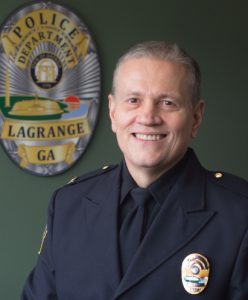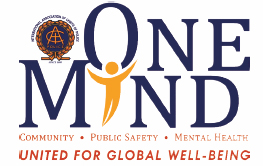
A healthy community requires hard work and a concerted effort by all stakeholders—governing bodies; medical partners; faith communities; community and nonprofit groups; and, of course, law enforcement. Without all of these parties working together to address homelessness, providing substance abuse treatment, or assisting community members with mental illness, the goal of a healthy, flourishing community will not be obtained.
More than ever, law enforcement has been asked to play a larger role in addressing social problems. From metropolitan cities to hamlets and villages around the world, social and public health challenges, by default, have become police matters.
Our officers work in society’s darkest places with individuals who are troubled and who live chaotic lives. In many instances, these community members are affected by substance abuse, homelessness, or mental illness. During meetings in the Caribbean, Europe, Asia, and the Middle East, I’ve learned that these social issues are confronted by our police officers on almost every continent.

These are not issues of our making, nor are they issues that we have necessarily trained for. But, all too often, our leadership, and our communities demand that we address them.
To provide some context to this challenge, consider the following. In 1960, the United States was a country with a population of 150 million and had 600,000 treatment beds for those affected by mental illness.
Today, the United States is a country with a population of 330 million, and less than 60,000 beds are available in treatment facilities.
The sad reality is that the largest providers of mental health services in the United States are our prisons and jails. The three largest facilities in the United States that treat mental illness are New York City’s Ryker’s Island Jail, the Cook County Jail in Chicago, and the Los Angeles County Jail.
As a society, we have criminalized mental illness. And, while this is tragic, it also has other implications for policing. Research consistently finds at least 25 percent of those persons killed by police in the United States were affected by mental illness, and the facts and incidents that confront the police in the United States are repeated throughout the world. Internationally, we know in some cases, those affected by mental illness are recruited for terrorism.
The story that is frequently untold is that some people shot by police were previously taken to the hospital by the police for treatment three, five, eight, or more times before that fatal encounter.
Recognizing this is a challenge and an international issue, the IACP developed the One Mind Campaign. The One Mind Campaign seeks to ensure successful interactions between police officers and persons affected by mental illness. The goal is to unite local communities, public safety organizations, and mental health organizations so that the three become “of one mind” and start working together, instead of independently of each other.
The campaign design is simple. There are four required actions for agencies to meet the campaign promise.
- Establish a clearly defined and sustainable partnership with one or more community mental health organizations.
- Develop and implement a model policy addressing police response to persons affected by mental illness.
- Train and certify 100 percent of an agency’s sworn officers (and selected non-sworn staff, such as dispatchers) in Mental Health First Aid.
- Provide Crisis Intervention Team training to a minimum of 20 percent of the agency’s sworn officers (and selected non-sworn staff, such as dispatchers).
Today, we have 274 agencies that have already taken the One Mind pledge. I encourage every agency, regardless of size, to take the pledge and enroll in this important initiative.
The goal of One Mind is to generate interest in all the disciplines that serve those affected by mental illness and, eventually, communities on a global scale in order to reduce the incidents of use of force between the police and those affected by mental illness. ♦
www.theIACP.org/onemindcampaign
Please cite as
Louis M. Dekmar, “Contributing to Healthy Communities through the One Mind Campaign,” President’s Message, The Police Chief (December 2017): 6.


